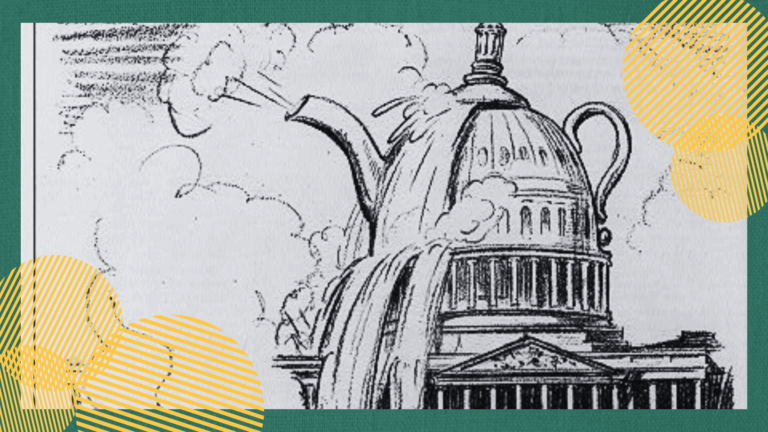The Teapot Dome Scandal

Video
We’ve partnered with Detroit PBS to bring you our Portraits in Oversight video series. Our video on the Teapot Dome scandal is designed for use in the classroom and features expert commentary.
We are of opinion that the power of inquiry—with process to enforce it—is an essential and appropriate auxiliary to the legislative function…. A legislative body cannot legislate wisely or effectively in the absence of information respecting the conditions which the legislation is intended to affect or change, and where the legislative body does not itself possess the requisite information — which not infrequently is true — recourse must be had to others who do possess it. Experience has taught that mere requests for such information often are unavailing, and also that information which is volunteered is not always accurate or complete, so some means of compulsion are essential to obtain what is needed.
The Supreme Court, McGrain v. Daugherty
One of the most important Senate investigations into federal bribery, corruption, and a failure to prosecute, as well as the right of Congress to investigate and expose wrongdoing, began in 1922. Known as the Teapot Dome scandal, the inquiry not only exposed one of the worst government scandals in American history, but also helped change the legal landscape of congressional investigations forever.
In 1920, President Woodrow Wilson set aside three tracts of oil-rich land to be used in national emergencies. President Wilson transferred control of the oil fields from the Secretary of the Interior to the Secretary of the Navy. Under the following administration of President Warren G. Harding, however, Secretary of the Interior Albert Fall advised the President to return control of the land to his department. On May 21, 1921, President Harding signed Executive Order 3474, transferring control of the Naval Oil Reserves from the Secretary of the Navy to the Secretary of the Interior.
The oil fields came to the attention of Congress in April 1922, when a senator received a flurry of correspondence from constituents informing him of backroom deals that had resulted in the private leasing of the Teapot Dome land tract to two different wealthy oil companies. Both leases provided terms very favorable to the oil companies, and the Teapot Dome lease was made with no competitive bidding. Neither the public nor Congress had been informed of the leases beforehand. Congress needed to know why.
Content Standards
MI USHG – 7.1.1 The Twenties Explain and evaluate the significance of the social, cultural, and political changes and tensions in the “Roaring Twenties” including:
- cultural movements such as the Jazz Age, the Harlem Renaissance, and the “Lost Generation.”
- the increasing role of advertising and its impact on consumer purchases.
- the NAACP legal strategy to attack segregation.
Once you fill out this form, you will be redirected to our download page. Make sure you save the download page so that you continue to have access to our materials!
If you have already filled out the download form, click here.